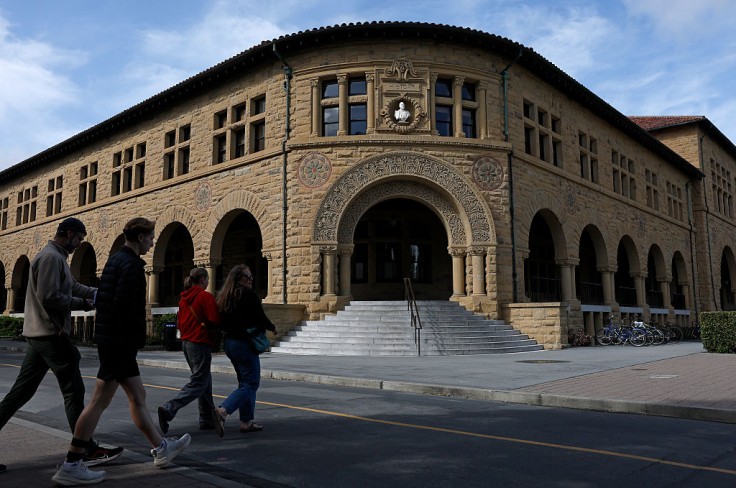Stanford Pro-Palestinian Protesters Face Felony Charges for Occupying President's Office
By
PALO ALTO, Calif. — Twelve individuals, including current and former Stanford University students, have been charged with felony vandalism and conspiracy to trespass following a June 2024 pro-Palestinian protest that occupied the university president's office, causing significant damage. The charges, announced by the Santa Clara County District Attorney's Office, mark one of the most severe legal responses to campus protests sparked by the Israel-Gaza conflict last year.
The protesters, part of a coordinated effort demanding Stanford divest from companies tied to Israel's military actions, barricaded themselves inside the administrative building known as Building 10 on June 5, 2024. Authorities allege the group spray-painted walls with slogans like "Death to Israel," broke windows and furniture, disabled security cameras, and splattered red liquid resembling fake blood across the premises. Damages are estimated to range from $250,000 to $1 million, with one campus safety officer reportedly injured during the three-hour occupation.
Santa Clara County District Attorney Jeff Rosen condemned the actions, stating, "Dissent is American, vandalism is criminal." Evidence presented by prosecutors includes cellphone data showing the group planned the takeover using a "Do-It-Yourself Occupation Guide," which detailed methods for breaking into buildings with tools like crowbars and bolt cutters, all of which were found at the scene. The occupation, accompanied by a Stanford Daily reporter, ended with arrests after police intervened.
The protest was part of a broader wave of campus activism calling for universities to address their financial ties to the Israel-Hamas conflict. At Stanford, students had maintained a pro-Palestinian encampment in White Plaza, not far from the occupied building, amplifying demands for divestment. However, the escalation to property destruction has drawn sharp criticism, with university officials condemning the protest as crossing legal boundaries.
For Stanford's community, the charges raise complex questions about free speech and accountability. Some students argue the felony charges are disproportionate, aimed at deterring activism, while others believe the vandalism undermined legitimate calls for change. The case also intersects with broader federal scrutiny, as the Trump administration has threatened to withhold funding from universities accused of failing to curb antisemitism, a charge Stanford has faced in separate complaints.
As the legal process unfolds, the charged individuals—mostly women aged 19 to 32—face significant consequences, including potential jail time if convicted. The case could set a precedent for how universities and authorities handle future protests, with Stanford already signaling stricter enforcement of campus policies. For now, the university remains a flashpoint in the national debate over activism, institutional responsibility, and the limits of dissent.
© 2025 University Herald, All rights reserved. Do not reproduce without permission.








